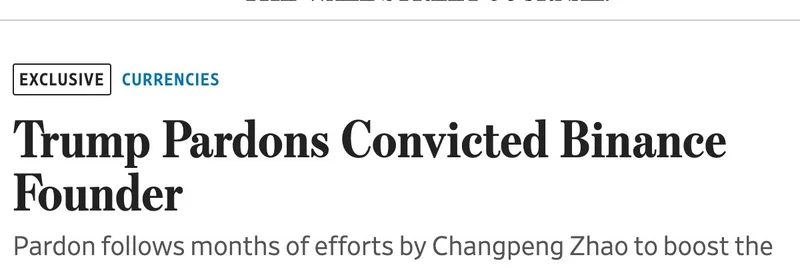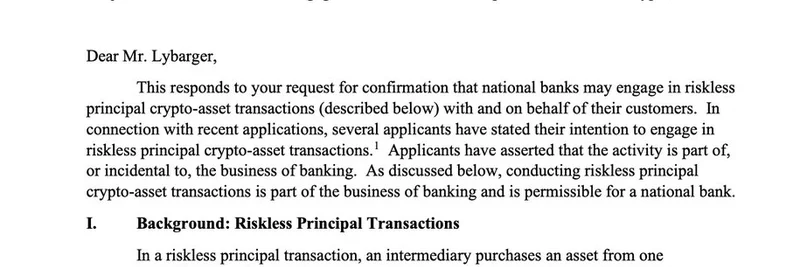In the fast-paced world of crypto, where meme tokens like Dogecoin and newer entrants such as PEPE or WIF can skyrocket overnight based on community hype and market sentiment, regulatory news often sends ripples through the ecosystem. Yesterday, a fiery exchange on X (formerly Twitter) between Perianne Boring, founder of the Chamber of Digital Commerce, and Senator Elizabeth Warren highlighted the ongoing tensions between traditional finance regulators and the crypto industry. Let's break it down and see how this could impact meme token traders and enthusiasts.
The Spark: Warren's Accusation of Corruption
Senator Elizabeth Warren, a vocal critic of the crypto space, posted about Changpeng Zhao (CZ), the founder of Binance—the world's largest cryptocurrency exchange by trading volume. In her tweet, Warren claimed CZ pleaded guilty to a "criminal money laundering charge," served prison time, then allegedly financed President Trump's stablecoin project and lobbied for a pardon, which he received. She called it corruption and urged Congress to act.
Attached to her post was a screenshot from The Wall Street Journal, headlining Trump's pardon of CZ after months of efforts by Zhao to support Trump's crypto initiatives. According to reports from Politico and Axios, the pardon came after CZ served four months in prison last year.
But here's where it gets interesting: Warren's framing of the charges isn't entirely accurate, and that's what sparked the backlash.
Perianne Boring's Clapback
Perianne Boring, a prominent crypto advocate and "Crypto Double-OG" as per her bio, quickly responded in her own tweet. She pointed out that CZ didn't plead guilty to money laundering per se. Instead, it was a violation of the Bank Secrecy Act (BSA)—specifically, failing to maintain an effective anti-money laundering (AML) program. For those new to the jargon, the BSA is a U.S. law requiring financial institutions to help prevent money laundering by keeping records and reporting suspicious activities. AML programs are the systems companies put in place to comply with that.
Boring emphasized that CZ is the first and only first-time offender in U.S. history to serve prison time for a single, non-fraud BSA charge. She contrasted this with big banks like HSBC or JPMorgan, which have paid billions in fines for similar AML lapses without any executives going to jail. "A manifest injustice worthy of a pardon," she called it.
To back this up, one reply to Boring's tweet included a screenshot from CZ's plea agreement document, confirming the charge was indeed about failing to implement an effective AML program—not direct money laundering.
Community Reactions: From Support to Skepticism
The crypto community on X didn't hold back. Replies ranged from supportive jabs at Warren—like @CryptoWendyO suggesting she's upset because she's not getting industry checks—to more critical takes defending the regulatory process. One user, @ChazzonKe, argued that CZ willfully ignored U.S. laws, quoting his own words about asking for forgiveness rather than permission. Others, like @NextArkDAO, kept it light with memes, calling for Warren to take a nap.
This mix of reactions underscores the divide in crypto: some see the pardon as a win against overzealous regulation, while others worry it sets a precedent for skirting rules. As Wired put it, "The war on crypto is over," signaling a potential shift under the Trump administration.
What Does This Mean for Meme Tokens?
Now, tying this back to meme tokens—the heart of what we cover here at Meme Insider. Binance plays a huge role in the meme token economy, listing popular ones and providing liquidity that can make or break a project's hype cycle. CZ's pardon could boost confidence in the platform, potentially leading to more listings and trading volume for memes.
With Trump back in office and pardoning a crypto heavyweight, it hints at a more pro-crypto regulatory environment. This might mean less fear of crackdowns on exchanges, which indirectly benefits meme token creators and traders. Remember, memes thrive on speculation and community buzz; anything that reduces regulatory uncertainty could fuel the next bull run.
However, critics like Warren argue this pardon exemplifies "pay-to-play" politics, especially since CZ reportedly supported Trump's World Liberty Financial stablecoin project. If her calls for stricter oversight gain traction in Congress, we could see renewed pushes for laws targeting crypto exchanges, which might trickle down to meme token regulations.
For blockchain practitioners diving into meme tokens, this saga is a reminder to stay compliant. Even if you're launching a fun, community-driven token, understanding basics like AML can prevent headaches down the line. Keep an eye on updates from sources like CNBC or BBC for how this evolves.
In the end, this exchange between Boring and Warren isn't just Twitter drama—it's a window into the future of crypto regulation. Whether you're HODLing your favorite meme or building the next viral token, staying informed is key to navigating this wild space. What are your thoughts on the pardon? Drop them in the comments below!




